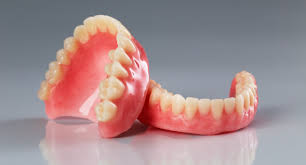
Study Suggests Denture Use May Protect Against Cognitive Decline in Older Adults
New research published online on December 23 in Aging Medicine suggests that wearing dentures may help mitigate cognitive decline among older adults with partial tooth loss. The study, led by Xiang Qi, Ph.D., R.N., from the New York University Rory Meyers College of Nursing, examined the relationship between denture use and cognitive health in a large cohort of Chinese older adults.
The analysis involved 27,708 community-dwelling adults aged 65 years and older who participated in the Chinese Longitudinal Healthy Longevity Survey between 2008 and 2018. The findings revealed that denture use among participants with some remaining teeth (dentate) was associated with better baseline cognitive function and a slower annual rate of cognitive decline. Specifically, denture users with partial tooth loss exhibited significantly better cognitive function scores (β, 1.032) and experienced a slower decline over time (β, 0.127) compared to non-denture users.
Among participants who were completely toothless (edentulous), denture use was linked to higher baseline cognitive function (β, 3.063), though it did not appear to influence the rate of cognitive decline (β, 0.011). The results remained consistent across subgroups of dentate individuals with varying degrees of tooth loss.
The authors emphasized the potential role of prosthodontic rehabilitation in preserving cognitive health in aging populations. "This study highlights the potential importance of prosthodontic rehabilitation in preserving cognitive health," the authors noted, while calling for further research to determine a causal link between denture use and cognitive function.
The findings underscore the significance of oral health in promoting overall well-being in older adults and open new avenues for exploring the benefits of dental prosthetics beyond their traditional roles. One author disclosed a connection to the editorial board of Aging Medicine.